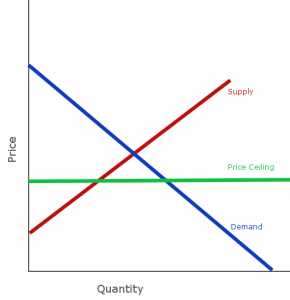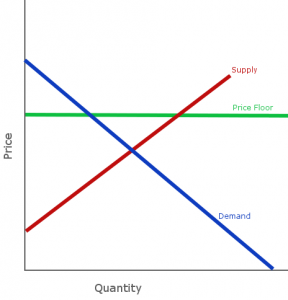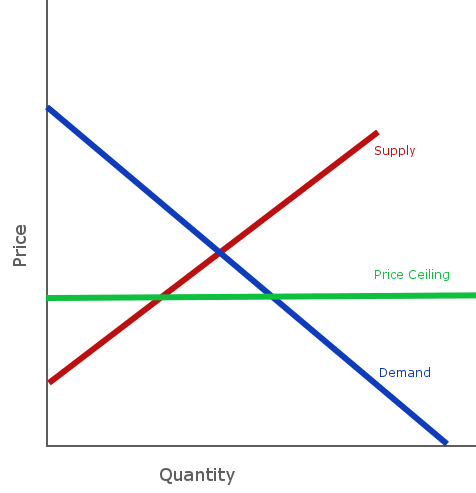Definition
“Price Controls” are artificial limits that are put on prices. If the limit is put in place to prevent prices from getting too high, they are called Ceilings. If they are in place to prevent the price from getting too low, they are called “Floors”.
Price Ceilings

These controls are put in place to protect consumers and to prevent price gouging, particularly so the poor are able to afford basic goods and services. When there is a price ceiling, suppliers cannot sell above a certain price, and this creates a Market Shortage.
With a Market Shortage, the quantity producers are willing to supply is less than the total quantity that consumers demand at the given price. This can result in rationing, or lottery systems to determine which consumers are able to buy.
In extreme cases, it can result in “Bread Lines”, where essential goods are not supplied in sufficient amounts, so consumers need to join waiting lists to get their necessary share.
Price Floors

These controls exist to prevent shortages, by making sure suppliers get at least a certain price, it encourages production. When there is a price floor, the producers are willing to supply more than consumers demand at a given price, creating a Market Surplus.
With a Market Surplus, the government needs to buy the excess production, or else the market price will collapse back down. In the case of milk, the government typically buys the excess production and stores it, uses it as part of disaster relief, or tries to sell it on international markets.


 US Jobless Claims Fall For The First Time In 4 Weeks!
US Jobless Claims Fall For The First Time In 4 Weeks! Basic Investing Strategies
Basic Investing Strategies